Saving budget on products
To save money on grocery purchases, you don't have to reduce your diet or buy only cheap products. To do this, you need to analyze and adjust your economy menu, study the prices and features of selling goods in grocery stores. Rules to help reduce food costs:
- Decide on the menu for the week. Make a list of products that will be needed to prepare the intended dishes, and make purchases only according to the list. Don't go shopping on an empty stomach.
- Go to the store purposefully, once or twice a week. Take with you only the amount of money needed for the purchase.
- Choose retail outlets with quality products and relatively low prices. It is profitable to buy food products at markets (there is an opportunity to bargain), wholesale centers, social fairs, specialized stores from the manufacturer, where markups are minimal.
- Avoid purchasing semi-finished and ready-made meals. Buying them costs one and a half to two times more than preparing them yourself.
- Pay attention to the packaging. The same products in cardboard boxes and tetrapacks cost several rubles more than in economy containers (plastic, polyethylene) or by weight (milk, sour cream, cottage cheese, etc.).
- Keep an eye out for discounts and promotions that are regularly held in large retail chains.
- When visiting shopping malls, look at the bottom shelves. Sellers place cheap products there, and display products of more expensive brands at eye level of the buyer.
- Take a closer look at products that are about to expire. They retain their consumer properties and are sold at a discount. You can even buy cereals, tea, and coffee with a slight delay.
- Study the range of stores that sell goods at a single price (“Fix price”). A number of products can be purchased cheaper than at other retail outlets.
- Store-bought juices and drinks in cardboard and glass packaging contain preservatives and are expensive. It is better to replace them with homemade fruit drinks, berry compotes, and dried fruits.
- Personal farming helps to significantly save costs on the purchase of vegetables, dairy products, and meat.
- Use plastic cards with a cash-back function.
Promotions and discounts for pensioners
Large retail chains periodically conduct campaigns to attract customers. Some products are sold at a significant discount (up to 50%), others are offered on a “1+1” principle: when purchasing a product, the buyer receives a second copy for free.
For pensioners, two developed supermarket chains have provided a special system of discounts:
- Magnit offers a 10% reduction in the cost of goods when visiting the store before 11 a.m. local time from Monday to Thursday. Some retail outlets are extending the period of preferential terms: up to 13 hours from Monday to Friday inclusive.
- Pyaterochka provides a 10% discount when purchasing goods before 13:00 on Monday and Thursday. On other days until the specified hour, a 5% price reduction applies to pensioners.
Saving money on products with preferential offers is possible if you present a supporting document - a pension or social security card. Discounts do not apply to products sold on promotion, alcohol, and tobacco products.

Cashback when paying with a bank card
With the transfer of payments to an electronic basis, pensioners have the opportunity to pay for goods in supermarkets using plastic cards. Some of these means of payment have a cashback function - returning part of the money (or points, bonuses) spent on the purchase. When concluding a contract, it is necessary to clarify whether the specified option is valid at all retail outlets.
- Parental controls on your computer
- 6 signs indicating a blood clot in the legs
- How long to cook corn
Some banks provide cashback for purchases only in the stores of their partners or subject to certain conditions (Sberbank, Tinkoff Bank, Vozrozhdenie, etc.). Plastic card options with free issue and maintenance are considered beneficial for most pensioners:
- Pension card from the Moscow Industrial Bank (another name is “Mitten”, for its characteristic design). There is a 5% cashback on purchases in supermarkets and pharmacies.
- “Pension” card from Sberbank with the connected “Thank you” program. Depending on the fulfillment of the conditions, when purchasing products, a refund is made in the amount of 0.5 to 1.5%.
- Pension card from VTB. When paying for purchases in the amount of 5 thousand rubles per month, 1% of the money spent is returned to your balance.
Growing greens on a windowsill
Fresh greens enrich the diet with natural vitamins and minerals. In winter, prices for it increase significantly: parsley, green onions – from 40 rubles/100 g, cilantro – from 50 rubles/100 g, lettuce – from 70 rubles/100 g.
In order not to overpay for purchased greens, you can replace them with those grown on your own on the windowsill in your apartment. To do this, you need to plant the seeds in a pot with soil and care for them. It is easier to grow green onions or watercress at home than dill and parsley.

Subsidiary farm
When you retire, you can start working on your personal plot, vegetable garden, and have chickens, pigs, and cows. Harvesting vegetables and fruits, eggs, milk, meat from your own farmstead will allow you to save significantly on the purchase of these goods. In addition to monetary benefits, your products will not raise doubts about their quality and the absence of harmful additives.
Home canning
If you can preserve cucumbers, tomatoes, salads, jams, compotes in the summer-autumn period, there will be no need to buy expensive ready-made canned food. For harvesting, fruits grown by oneself or purchased at low seasonal prices are used. This way to save money is suitable for lovers of canned food, since the process of packing vegetables, fruits, and berries requires a lot of time and effort.
Living wage in St. Petersburg from January 1, 2020
You can see how important the PM value is for determining the amount of expenditure in the budget at both levels. The minimum wage now directly depends on the size of the monthly minimum wage. Since May 2020, it has been legally determined that the minimum wage should be no less than the minimum wage. PM is the most important component for determining the amount of additional pension payments.
St. Petersburg has adopted a program for social support for Russians who are classified as low-income. The program was developed until 2020 and covers all groups of low-income citizens, primarily non-working pensioners. A table that clearly demonstrates the increase in the size of PM in St. Petersburg:
The return of household appliances and other goods if defects are detected in their operation is carried out in accordance with the law on the protection of consumer rights. Funds are transferred to the details specified in the application by the buyer. They can be used to purchase goods of the same purpose in the same category again.
We recommend reading: Who is a single mother in Belarus?
Error 1 . To receive compensation for essential goods, you do not need to prove poverty. It is enough for the citizen to confirm the absence of other relatives or an advanced age of 70 years. The money will be credited to his card, where the pension is sent, or in person.
How to return essential goods purchased under benefits for pensioners
Accurate information about the introduction of food cards has not yet been received. However, the Government of the Russian Federation announced that it plans to allocate 10,000 rubles from the budget every month. for a pensioner. Thus, budget expenditures will amount to about 240 billion rubles. regarding 15-16 million people. All family members of a low-income citizen will be able to use the cards.
The Vera Hospice Fund is asking for help collecting gifts for 3,300 people. With everything that we traditionally treat our friends and family to at home on New Year’s Day, we can also please the patients of eight Moscow hospices, the Palliative Care Center, and the palliative department of Hospital No. 15 named after. O.M. Filatov, hospice No. 4 in St. Petersburg, hospices in Samara and the village of Porechye-Rybnoye. And also those who are at home - and to whom the hospice visiting team comes.
How to eat healthy and inexpensively for a pensioner
For older people, due to age-related changes in the body, it is advisable to adhere to a diet to preserve health. It serves as a prevention for a number of diseases, helps maintain normal body weight, and allows you to save on buying food. Recommendations for proper nutrition:
- Eat small meals several times a day at the same hours. Eat easily digestible dishes (porridge) for breakfast, nutritious ones for lunch, and dinner should be medium in calories.
- Drink at least 1 liter of water per day, no later than half an hour before meals and no earlier than an hour after it. This helps reduce hunger and acidity.
- Replace butter in your diet with vegetable oil. It is better to avoid products with combined fats (mayonnaise, margarine).
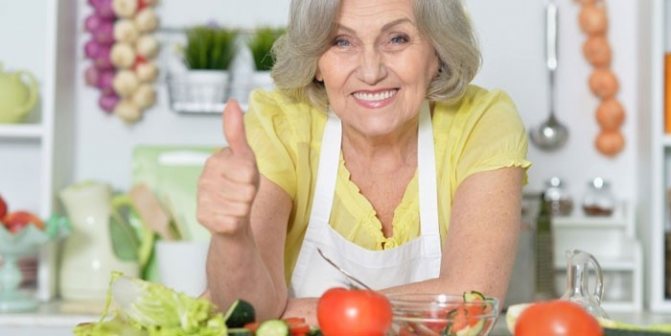
- Buy cheap offal (stomachs, liver). When cooked correctly, they are not much inferior to meat in terms of culinary qualities.
- Instead of red meat, eat white meat, which is easier to digest - chicken, turkey, rabbit.
- Include eggs in your diet , which supply the body with lecithin and protein, 3-4 pieces per week.
- Choose low-fat varieties of fish. Try to cook it at least twice a week, preferably not frying, but steaming or boiling.
- Eat a small amount of fresh onions and garlic (unless there are medical contraindications). These vegetables help cleanse blood vessels, stimulate blood circulation, and serve to prevent thrombosis.
- Avoid smoked foods, pickles, canned foods, or limit their intake (no more than 2 times a week).
- Eliminate fast food (hamburgers, sushi) and carbonated drinks from your family’s diet. Eating such dishes is expensive and unhealthy.
- When cooking meat products, use the broth to prepare soups; stew the meat itself with vegetables or make a side dish for it.
- Try to eat no later than 1.5-2 hours before bedtime. About 30 minutes before your night's rest, you can drink a mug of warmed milk with a teaspoon of honey.
- DIY rugs made from plastic bags
- 5 best clinics for joint treatment
- Unpaid leave for working pensioners - procedure and rules for granting
Seasonal fruits and vegetables
Saving on groceries includes buying vegetables and fruits in season, which is cheaper and healthier. After the harvest, prices for these goods are reduced and the quality is better. In the fall, you can put in a basement or cellar a supply of potatoes, carrots, beets, and other vegetables for several months. When purchasing, give preference to products grown in Russia or in nearby countries.
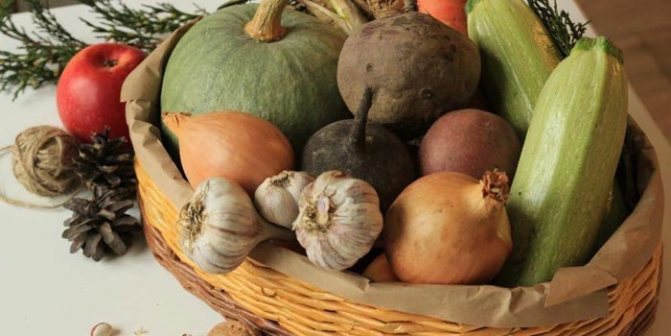
Slowly digestible carbohydrates
To improve the health of the body, it is useful to eat foods with a high fiber content. They improve digestion, metabolic processes, and normalize blood sugar levels. “Slow” carbohydrates have a low glycemic index (an indicator of the rate of conversion of saccharides into glucose).
They also take longer to digest and give a prolonged feeling of fullness. Their use in winter increases the body's resistance to cold and stimulates the production of serotonin.
Slowly digestible carbohydrates include:
- grain legumes: peas, beans, lentils, pearl barley (except corn);
- vegetables (except potatoes, pumpkins);
- fruits, berries, nuts;
- milk, cottage cheese.
Refusal of smoked foods and fast carbohydrates
One of the effective ways to save money and maintain health is to avoid smoked foods and quickly digestible carbohydrates. Sausages, sausages, and smoked fish are not recommended for those who adhere to a healthy lifestyle (healthy lifestyle). These products contain many flavoring, preservative additives, dyes, and are more expensive than natural meat or fish.
“Fast” carbohydrates are often made using the same substances that are harmful to health. Natural products from this category are broken down in the digestive system at a high rate. They satisfy hunger for a short time, promote the formation of fat deposits, and therefore are especially not recommended for women.
Quickly digestible carbohydrates include:
- baked goods made from wheat flour, yeast, puff pastry;
- potato dishes;
- sugar;
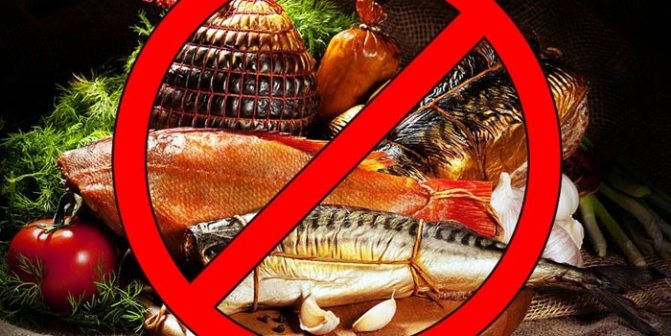
- milk chocolate, bars, candies;
- fast food (chips, cola, hamburgers);
- sweet juices, drinks;
- muesli;
- rice, semolina, corn products (cereals, popcorn, cereals);
- noodles, pasta from soft wheat varieties;
- honey;
- bananas, apricots, grapes.
Pasta, cereals, flour
Keep pasta, grains and flour on hand. This type of food not only lasts a long time, but also provides energy. You should have enough all-purpose and other flours for bread and baked goods. Pasta is easy to stock up on, and different types of noodles such as spaghetti, farfalle, shells, rigatoni and so on keep the food interesting. Don't overlook orzo—it's a pasta that looks like a large grain of rice that's easy to toss into soups, toss with roasted vegetables, and garnish with Parmesan and pepper.
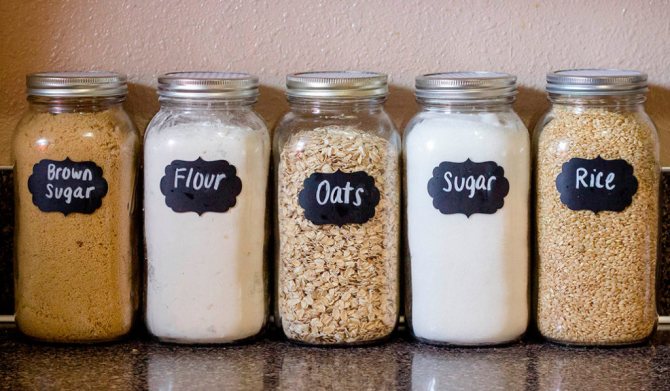
Stock of pasta, cereals and flour
Also, from a carb perspective, having a bag of rice the size of a large box is always a good idea. It lasts for a long time and can be an ingredient in many dishes. There are also many types of rice such as wild, brown and basmati.
Oatmeal is a good choice and can be sweet or savory. Cornmeal is great in cornbread, pancakes, and as a breading.
See also: Frozen green peas
Cereals can also be stored in the pantry, although they will not last as long as in a sealed container.
Weekly grocery list to save money
In old age, it is important to maintain a balanced diet, avoiding extremes. An anti-crisis weekly ration for two people, including necessary goods from the food basket approved for the population, will cost approximately 2400-2500 rubles.
To prepare economical meals for a small budget, you will need to buy:
- meat products: chicken (1 kg – 150 rubles), minced beef (1 kg – 280 rubles), chicken soup set (200 g – 60 rubles), beef liver (0.4 kg – 75 rubles);
- bread, grain products: rice (1 pack - 60 rubles), oatmeal (1 pack - 35 rubles), buckwheat (1 pack - 70 rubles), millet (1 pack - 50 rubles), semolina (1 pack – 30 rubles), pasta (1 pack – 60 rubles), vermicelli (1 pack – 30 rubles), bread (2 rolls – 60 rubles), cookies (2 packs – 60 rubles .);
- dairy products: milk (2 l - 100 rubles), cottage cheese (1 pack - 170 rubles), sour cream (1 pack - 80 rubles), cheese (0.3 kg - 150 rubles), low-fat kefir ( 1 l – 70 rub.), fermented baked milk (1 pack – 70 rub.);
- vegetables: potatoes (2 kg – 40 rub.), cucumbers (2 pcs. – 70 rub.), bell pepper (1 pc. – 30 rub.), tomatoes (3 pcs. – 140 rub.), beets (2 pcs. . – 10 rub.), carrots (4 pcs. – 20 rub.);
- fruits: apples (2 pcs. – 50 rub.), bananas (2 pcs. – 20 rub.), pears (2 pcs. – 30 rub.);
- eggs (10 pcs. – 60 rub.);
- fish: pollock (1 kg – 150 rubles)
- sunflower oil (1 pack - 100 rubles), butter (1 pack - 120 rubles);
- other products (salt, sugar, tea, spices) – 150 rub.

Budget menu for a pensioner
An economical family menu for a week should provide the amount of proteins, fats, carbohydrates necessary for the body and consist of delicious dishes. On your day off, you can bake pies or charlottes with fruit and berry fillings.
Weekly diet with approximate serving size per person:
Monday:
- breakfast – rice porridge with milk (150 g);
- second breakfast – 2-3 sandwiches (bread, butter, cheese), tea;
- lunch – borscht with sauerkraut (300 g);
- afternoon snack – cottage cheese with sour cream, sugar (200 g);
- dinner – vegetable stew (200 g), meat gravy (100 g);
- second dinner - kefir.
Tuesday:
- oatmeal porridge (150 g);
- cookies (3-4 pcs.), kefir;
- borscht with sauerkraut (250 g);
- apple;
- pilaf (150 g), vegetable salad (200 g).
- yogurt.
Wednesday:
- buckwheat porridge with milk (150 g);
- 2-3 sandwiches, tea;
- cabbage soup with fresh cabbage (300 g);
- banana;
- mashed potatoes (150 g), cutlet (100);
- second dinner - fermented baked milk.
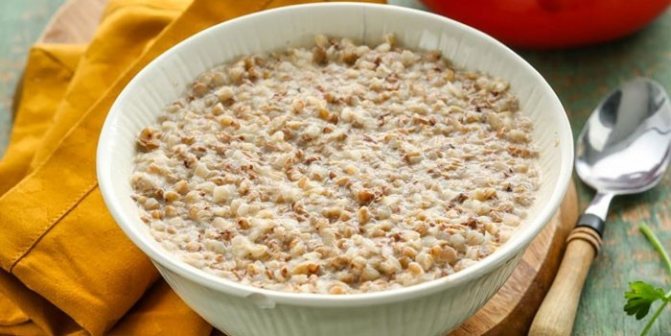
Thursday:
- rice milk porridge (250 g);
- cookies (3-4 pcs.), fermented baked milk;
- cabbage soup with fresh cabbage (250 g);
- pear;
- macaroni with cheese and mushrooms (150 g), two cucumbers;
- carrot salad (100 g).
Friday:
- millet porridge (150 g);
- cookies (3-4 pcs.), tea;
- chicken noodle soup (250 g);
- bun with jam, berry juice;
- buckwheat porridge (150 g), liver goulash (80 g);
- beet salad with prunes (200 g).
Saturday:
- cottage cheese casserole (150 g);
- 2-3 sandwiches, tea;
- chicken noodle soup (250 g);
- fruit salad (200 g);
- potatoes in a pot (250 g) with meat (80 g);
- kefir.
Sunday:
- scrambled eggs (omelet) with tomatoes (150 g);
- semolina porridge (150 g);
- pickle soup (250 g);
- apple pie, milkshake with berries;
- apple;
- Ryazhenka











